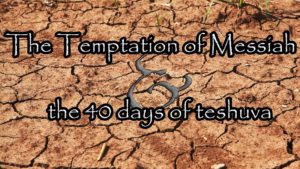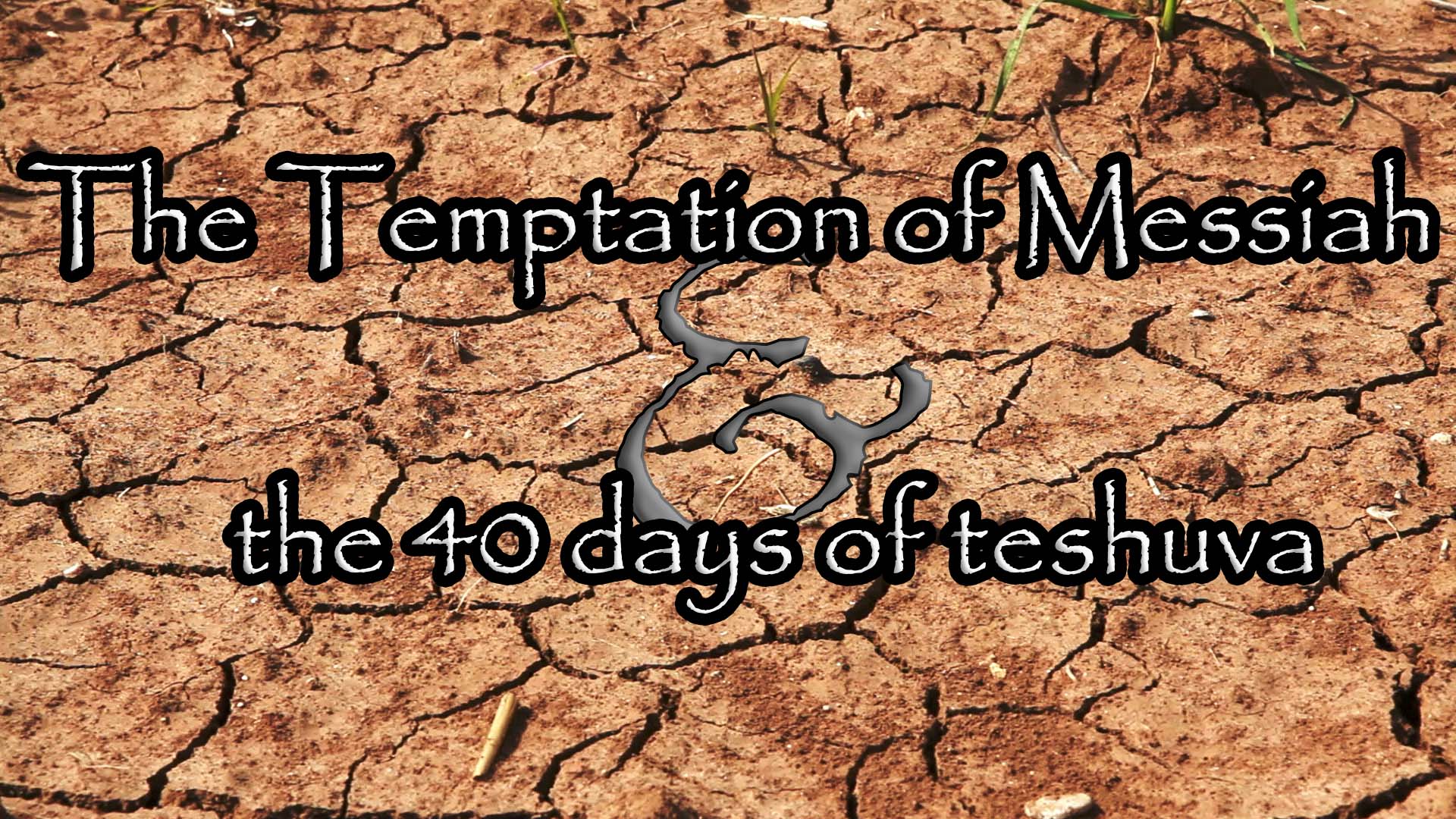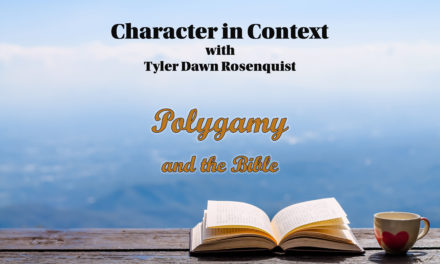 Hat tip to my Temple Teacher Joseph Good, who taught me much of this – and a whole lot more that I just cannot share with you because it would be a one thousand part blog. If this interests you, this is just a small taste (a very small taste) of his teaching series The Gathering (click on the red link) and worth every penny to people who want to understand the New Testament and especially Revelation, which was written in Temple language according to Jewish eschatological beliefs at the time.
Hat tip to my Temple Teacher Joseph Good, who taught me much of this – and a whole lot more that I just cannot share with you because it would be a one thousand part blog. If this interests you, this is just a small taste (a very small taste) of his teaching series The Gathering (click on the red link) and worth every penny to people who want to understand the New Testament and especially Revelation, which was written in Temple language according to Jewish eschatological beliefs at the time.
The Jewish Gospels of Matthew through John, as well as the Epistles and especially Revelation, are filled with references to the Jewish eschatological beliefs of the first century – if one knows the language. Sadly, this language has hardly been studied by our Christian forefathers over the centuries, giving way to beliefs grounded in what people presume the authors were talking about and resulting in a lot of popular speculation without serious scholarship – of which I myself have been more than guilty. Thus instead of being witness to the oft repeated Day of the Lord, the Millennial reign of Messiah beginning with the tribulation, John was instead having a vision on a Sunday. The “Last Trumpet” referenced over and over again in Jewish writings as being the Last Trumpet blown in the Rosh Hashannah Temple ceremony becomes simply a random blast from Heaven calling home the elect, and the Great Trumpet of Yom Kippur gets lumped in with the seventh Trumpet of Revelation or the aforementioned Last Trumpet of Rosh HaShannah as though they were one in the same! We hear words like ‘arise’ and ‘awake’ and because we are not familiar with what the authors knew – the Temple ceremonies – we utterly miss and misinterpret what we are reading. We do not know when the ‘gates’ were opened and closed or when the ‘books’ were opened and closed. Whole theologies have sprung up in Christianity, Messianic Judaism, and in the Hebrew Roots movement, that utterly ignore the context that we find throughout the Hebrew Scriptures and extra-biblical Second Temple writings – but we do a great disservice to Jews like John the Apostle when we ignore what they knew, what our ancestors chose to walk away from or forget, or maybe never had a chance to know in the first place.
This has been sadly coupled with a growing and disturbing tendency to write off everything concerned with Judaism as having its roots in Babylonian religion – without a demand for the burden of proof to be presented. Having studied Babylonian religion, which we now know a great deal about because of the archaeological and linguistic advances of the past century and a half, I fail to see the connections. Babylon was no more overtly pagan than any other Ancient Near Eastern culture, and in some ways it was a good deal less pagan (it is hard to imagine anyone being more pagan than the Hittites). In Scripture, it is Egypt and Canaan which were repeatedly associated with paganism, whereas Babylon was associated with government in rebellion, commerce, pride, and warfare. In any event, the more I study the Jewish liturgies associated with the Feasts (which are a witness to the prayers and songs offered up to God during His feasts), the more I see the language showing up in the Gospels and Epistles. Yeshua (Jesus) Himself makes repeated positive references to the Amidah (standing) prayers in His sermons (I will be detailing these in future blogs) as well as to many of the rituals practiced during the Feasts that pointed directly towards Himself.
Tomorrow begins the First of Elul, the beginning of the 40 days of corporate national repentance leading up to Yom Kippur (a practice based on the Book of Haggai, where in chapter one we see God repeatedly calling the returned Israelites to “Consider their ways” beginning on the first day of the sixth month, Elul 1). Many people will not participate, which I have no problem with, but some of those will cite as their reason Babylonian origins as though it is a proven fact, and I do have a problem with that. As someone who used to say those same things, I am embarrassed to admit that I was simply repeating what I had heard from everyone else – without actually studying the overwhelming amount of information we now have on the subject. They will draw upon the “40 days of weeping for Tammuz” which is an outright myth. Tammuz was not wept for over a period of 40 days – I have read the major research on Tammuz (Dumuzi), and every myth associated with him and his wife Ishtar (Inanna) and there is nothing there to suggest such a thing – despite many religious internet sites making said claims as though there is in fact proof. There was certainly weeping, but not out of any sense of repentance, and it was not for 40 days. If you would like to read what the research actually does say about the agricultural cycle and sympathetic weeping in the Tammuz cult, click here.
But we do see a forty day episode at the very beginning of the ministry of Messiah that is very important. After His baptism in the Jordan, Yeshua is led by the Spirit into the desert for 40 days. I believe that this time period is precisely this forty days of repentance for a couple of reasons:
(1) Although many Jewish writings of the Second Temple Period proposed that Messiah will come on Yom Teruah (which is the day that kings were coronated), Yeshua Himself said that He would return to Jerusalem to reign on Yom Kippur after the Birthpangs of the Messiah (called the tribulation in Christianity):
Matthew 24:29 “Immediately after the tribulation of those days the sun will be darkened, and the moon will not give its light, and the stars will fall from heaven, and the powers of the heavens will be shaken. 30 Then will appear in heaven the sign of the Son of Man, and then all the tribes of the earth will mourn, and they will see the Son of Man coming on the clouds of heaven with power and great glory. 31 And he will send out his angels with a loud trumpet call, and they will gather his elect from the four winds, from one end of heaven to the other.”
In Hebrew, this ‘loud trumpet call’ is not the Last Trumpet of Rosh Hasahhah, but the Tekiah Gedolah – the very loud and long trumpet call that is also associated with the onset of the Jubilee year (I once heard a ‘blast’ that went on for over a minute by a master shofar blower!). As the Jubilee marks the return of ancestral inheritances, and freedom from all debts, this trumpet signals both restoration and freedom. After a forty days absence, Yeshua would have re-emerged after not a one day, but a forty day long time of fasting and prayer, on Yom Kippur – the fortieth day. His first act of ministry was to emerge, as it were on Yom Kippur, foreshadowing His second coming as Messiah ben David, the conquering King.
(2) When John’s disciples see Yeshua, John says, “Behold the Lamb of God who takes away the sin of the world,” (John 1:29) and most people have historically taken this to mean the Passover Lamb – however, I am going to post a quote from Oscar Cullmann’s excellent book “The Christology of the New Testament” pg 71:
“But even the Fourth Gospel does not deal only with the necessity of the death of Jesus in general. It contains direct and precise reference to Is 53 in 1:29 and 1:36 in the testimony of John the Baptist: ‘Behold, the Lamb of God, who takes away the sin of the world.’ … that the Aramaic phrase טליא דאלהא which means both ‘Lamb of God’ and ‘Servant of God,’ very probably lies behind the Greek expression αμνὸς τοῦ Θεοῦ. Since the expression, ‘Lamb of God’ is not commonly used in the Old Testament as a designation for the paschal lamb, it is probable that the author of John thought primarily of the ebed Yahweh.”
Here we see Cullmann’s excellent argument for Yeshua being referred to, in first century Aramaic terms, as the Servant of God, who takes away the sins of the world. What season was nearly upon them when John the Baptist spoke? The forty days of repentance which would be followed by Yom Kippur, when the sins of the nation would be taken away by the Azazel goat! Although Cullmann, writing in the 1950’s, mistakenly saw the Paschal Lamb according to Christian tradition as a sin sacrifice (which it was not, no mention is ever made of sin – the blood of the paschal Lamb instead marked households as the people of God just as Yeshua’s blood marks the believer), his observation leads to Yeshua instead being compared to the Feast at which He would emerge into the fullness of ministry, having faithfully endured temptation – showing us the way. We also face temptation of course, just not nearly as much! He, being perfect, had to go through a lot more than we could ever handle and hasatan really doesn’t have a free enough schedule to be deeply invested in any of us as individuals.
When I spend the time from Elul 1 to Tishri 10 doing very deep soul searching, I am reminded of Messiah being tempted by the Enemy in the wilderness. In fact, like clockwork, things happen in my life heading up to Elul 1 (starting after Shavuot/Pentecost) that challenge me very deeply – there are generally hardships and betrayals and a lot of craziness that reveal my still very much alive character flaws – flaws that I am tempted to justify, coping mechanisms that I want to wallow in, grudges that I am tempted to nurse, hardships that I am tempted to celebrate my own personal little pity party over, memories of justice I have denied to others in the past and the restoration I am required to bring, or new dilemmas for which I have no answer. Sometimes there are even successes that tempt me either towards pride or the feeling that I am being vindicated over my enemies. This year I am experiencing all of these at the same time, and I feel as though I am (again) being led into the wilderness in order to deal with them.
But should this not be what happens when we follow Yeshua? When we follow Him, does it not lead us in the same paths that He Himself walked? No, we aren’t called to fast for 40 days, but I do feel that we are called into the wilderness of our own souls in order to pray and fight against the temptations of hasatan in this very prophetic season.
I have been asked – “Could this by the inspiration for the Catholic Lent season?” Quite possibly – they traditionally put the Temptation of Messiah in the spring before Passover, and the fasting of Lent mimics the 40 days of Yeshua in the wilderness in preparation for public ministry. That being said, I haven’t actually done the footwork to prove the connection so all I can say is, “It does make a logical argument.” Though I have to say, that according to the available material on the subject – I sincerely doubt it was a conscious choice and had more to do with what they thought Yeshua was doing than with what He actually was doing.






















WOW Sister!
Always been a believer in Trumpets for Messiah’s birth and return, but always willing to think.
Further study much required from me, thanks. I’m flabbergasted.
I was too until just recently, even wrote it in The Bridge 😉 – but you know how it is, the only way to stay “right” about everything is to stop studying lol
Joseph Good actually has a brilliant teaching proving that Messiah was born on Sukkot, which is what I have always taught (well, not always, but you know what I mean lol)
I do apologize, I had already had disproven for me the birth date, it really just slipped thru the cracks in my mind.
I’m not ready to stop studying. A favorite saying is “without change there can be no growth”. Shalom Shweetie.
Did Jesus fast during the 40 days of Teshuvah?
Regularly, I sincerely doubt it but if this did indeed coincide with the forty days of Temptation in the wilderness, then yes He would have according to Matthew, Mark and Luke.
Excellent Tyler Thank you so much. I’m about to begin Joe’s Temple study and looking forward to these nuggets like the trumpets. In recent years It has been the 5th month that I’ve experienced the pointing out of my errors as it were, from the year before. I love and have worked in agriculture most if not all of my life.
The time you get to see the mistakes you made in the fall is during the late summer harvest. You get to see the condition of the trees, vines, etc and their fruit. Healthy plants make it through the summer easily and bear good fruit to the end of the season. Unhealthy soil or practices produce sickly fruit and plants that suffer and often die. The fifth month is my “making a note of that” month. Elul is when I make the adjustments, and Yom Teruah my commitments to more torah obedient practices so that when Yom Kippur rolls around I’m ready and committed to a game plan for the next year. Of course it doesn’t last that is why I so appreciate the opportunity to do it again next year. Each year that I actually practice this in earnest, I seem to be able to endure just a little longer the next year. We’re adding more of the liturgy this year for For Shabbat, and Rosh Chodesh as well as the Fall feasts. Our little group seems to be able to handle a bit more than in previous years. What a mighty and amazing God who has given us everything we need for life and Godliness and Chen and Hesed as we make take our journey to the promised land.
fabulous, thanks for those insights!
The problem with comparing lent to Jesus’ 40 days in the wilderness (which the rationale Roman Catholics give) is that it immediately precedes His crucifixion, thereby bypassing, ignoring, overlooking His life’s ministry of demonstrating how to perfectly live Torah. One might think, well, this is just timing, and it’s only of coincidence that one leads to the next. The problem with this perspective is that there is a pattern by this early Roman-Hellenic church of gnoring His life and how to properly obey His Father’s teachings, aka the commandments and Torah. Consider the Nicene/Apostle’s Creed does the exact same thing. This was a “church” that, along with their converted Emperor (Constantine), had decided the best approach to converting the masses (not coincidentally thereby also maintaining control over them) was to “Christianize” the most common pagan, cultic holidays. By anyone’s understanding of Torah, this is a practice that was/is absolutely forbidden! We are to worship Elohim only how He defines it, not how we justify any man-made traditional approach.
I know that the “Christianizing of pagan holidays” is a commonly held belief within the Hebrew Roots and Out of Church Movements, but my extensive research into the actual pagan observances within Babylon, Assyria, Egypt, Canaan, as well as with the Hittites and adherents to the Mithraic mystery cult have come up empty as far as lining up with the popular teachings. My friend Ryan White, who is finishing up his master’s degree, has actually found some surprisingly dull origins for the Christian holidays – especially the December 25th connection which i talk about in another blog on my site. For the record, I in no way have justified Lent, so I hope you aren’t suggesting that – or any other holidays except those found in Scripture – my only purpose was to suggest that this might be just one more wrong turn off of something that was actually legitimate.
Not at all suggesting your endorsement of Lent. I also understand the source of some of the Roman traditions is uncertain, but we do know they are not entirely Biblical (if at all in some instances), but there is much in the Bible about the Hebrews adding their own traditions, mixing pagan practices with those of Torah, etc. It’s not difficult to connect the dots with Roman tradition, even if a definitive history is difficult to come by. This Roman-based “church” is massively powerful and that rabbit hole is deep so it’s takes great strength to stand up to such traditions, but it is something all those reliant solely on Scripture, with its foundation in Torah, must do consistently or people believing themselves saved will be lost to this false system of worship.
PS – I am also Friends with Ryan.
Yes, the ancient Israelites practiced henotheism – but as we see in the curses of Deuteronomy and Leviticus, the exile was intended to cure them of that – and it really did with the exception of the heretics who practiced Gnosticism who were flatly denounced by the rest of Jewry. The Jews after exile were so hateful of idolatry that they were willing to die before going back into it – in the Mishnah we see laws designed to bend over backwards to keep from doing anything pagan at all, gives me a headache – but then we also see strange seventh century chicken waving rituals being practiced with some sects in modern times. Judaism is not monolithic, that’s for certain. Historically we see rebellion after rebellion whenever anyone would try to defile the Temple in any way shape or form and even when we do not understand a Jewish tradition, deeper study has shown me Biblical roots to things. I was shocked to find, right in Scripture, their justification for many of their fast days that I used to say “weren’t Scriptural” – in I Chron 28, we see that Adonai gave David new instructions for the Temple, and the services, in writing. Sadly that document is lost, I wish it was still in existance – we cannot say what was and was not in it, but we do know that the Psalms were a large part of that. More tables, more menorot in the Holy Place – the services, etc. We cannot flatly attribute everything not spelled out in Scripture to being pagan because Scripture gives us almost no details about how to celebrate Feasts except “don’t work, don’t eat leaven, live in a Sukkah – enjoy yourselves.” So we can rely solely on Scripture while realizing that it doesn’t give us all the details. In the second century BCE, Hillel the great realized that at some point the Romans would destroy everything and he began to have written down all the details of what was being done, those writings continued and were finally organized (codified) in 200 AD in the Mishnah. The traditions of men that Yeshua referred to were very specifically some of the “things that were allowed” and some actual legislation (that was later struck down) from the House of Shammai – the manipulation of the oath of korban, specifically, is what Yeshua mentioned, but in other places the 18 edicts of Shammai were eluded to. A tradition of man isn’t something simply not written down in Scripture, if it is, then everytime we look at a commandment and decide for ourselves how it should be kept – then those are traditions of men as well – our traditions. We make the assumption that ours are authorized and spirit led, and so does the guy across the street who keeps it differently 🙂 It actually is difficult, in some cases, to connect the dots because of all the “just so” stories out there – urban legends that have been passed around as fact and go unquestioned. Anyway, Sabbath calls and I still have a Passover teaching to write but thanks for the chat 🙂
shalom\\
i love to study the bible from a first century perspective
i lead a small group of hebrew roots of faith in the city of manila philippines\\
aike